Israeli use of live fire in Gaza Strip creates unprecedented crisis: Red Cross
The International Committee of the Red Cross (ICRC) says Israeli troops’ unrestricted use of live ammunition against unarmed Palestinian protesters in the besieged Gaza Strip has left the enclave’s health workers struggling to cope with an unprecedented crisis.
More than 130 Palestinians, including 14 children, have so far been killed by Israeli troops since the Great March of Return rallies commenced in the blockaded sliver on March 30. Some 13,300 Palestinians also sustained wounds, of them 300 are currently in a critical condition.
Robert Mardini, the regional director for the Middle East at the ICRC, further said at a press conference on Monday that the “vast majority” of more than 13,000 hospitalized demonstrators had suffered severe injuries, including multiple gunshot wounds.
“This is I think a crisis of unprecedented magnitude in the Gaza Strip,” Mardini said, adding that he was in talks with the Israeli military in a bid to minimize civilian harm.
As a result of the talks, the Palestinian Red Cross has been able to dispatch aid workers in the vicinity of the fence, separating the Gaza Strip from the Israeli-held territories, to evacuate the wounded to safety.
Earlier on Monday, Israeli soldiers shot dead a 24-year-old unarmed Palestinian protester near the border, and a teenage Palestinian, who had recently been wounded by the Israeli live fire, succumbed to his injuries a few hours later.
The Gaza clashes reached their peak on May 14, the eve of the 70th anniversary of Nakba Day (the Day of Catastrophe), when the Israeli regime forcibly drove more than 760,000 Palestinians - now estimated to number nearly five million with their descendants – out of their homes. This year’s anniversary coincided with the US embassy relocation from Tel Aviv to occupied Jerusalem al-Quds, a highly provocative move that infuriated Palestinians and intensified the protesting rallies.
Since 1948, the Israeli regime has denied Palestinian refugees the right to return, despite United Nations resolutions and international law that upholds people’s right to return to their homelands.
Israel has launched several wars on the Palestinian coastal sliver, the last of which began in early July 2014. The military aggression, which ended on August 26, 2014, killed nearly 2,200 Palestinians. Over 11,100 others were also wounded in the war.
The Gaza Strip has been under an Israeli siege since June 2007. The blockade has caused a decline in the standards of living as well as unprecedented levels of unemployment and unrelenting poverty.
The Israeli regime denies about 1.8 million people in Gaza their basic rights, such as freedom of movement, jobs with proper wages as well as adequate healthcare and education.
6 Israeli soldiers committed suicide in recent months: Reports
Diplomat discourages recourse to pressure, intimidation, confrontation against Iran
UN: 2024 deadliest year for aid workers amid genocide in Gaza
Gaza health official warns of hospital shutdowns within 48 hours
Israel kills 5 more paramedics in southern Lebanon: Health ministry
Iran to launch ‘new, advanced’ centrifuges in response to IAEA resolution: AEOI
Yemen fires hypersonic missile at Israeli airbase
VIDEO | New Delhi chokes under toxic smog as air quality remains at hazardous levels




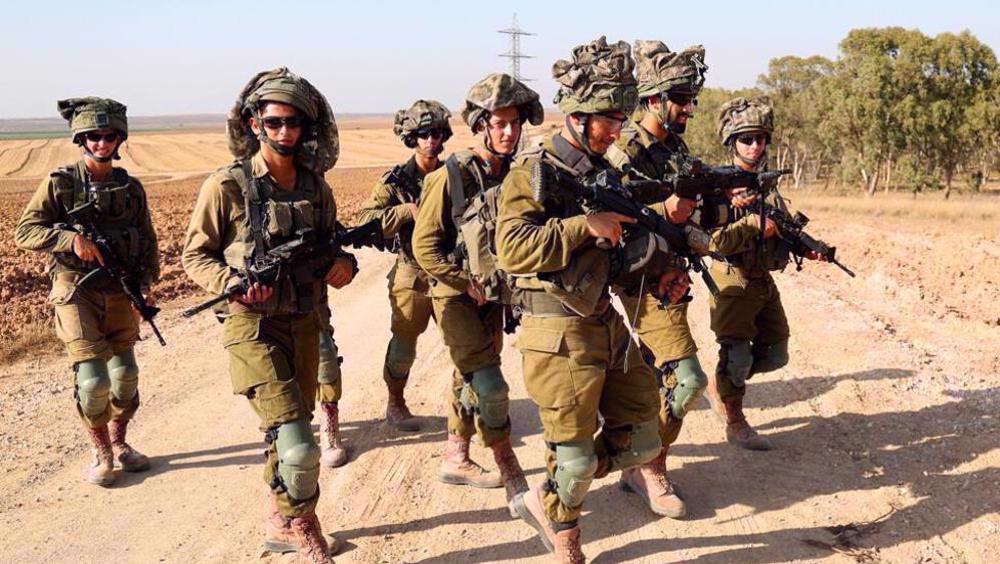
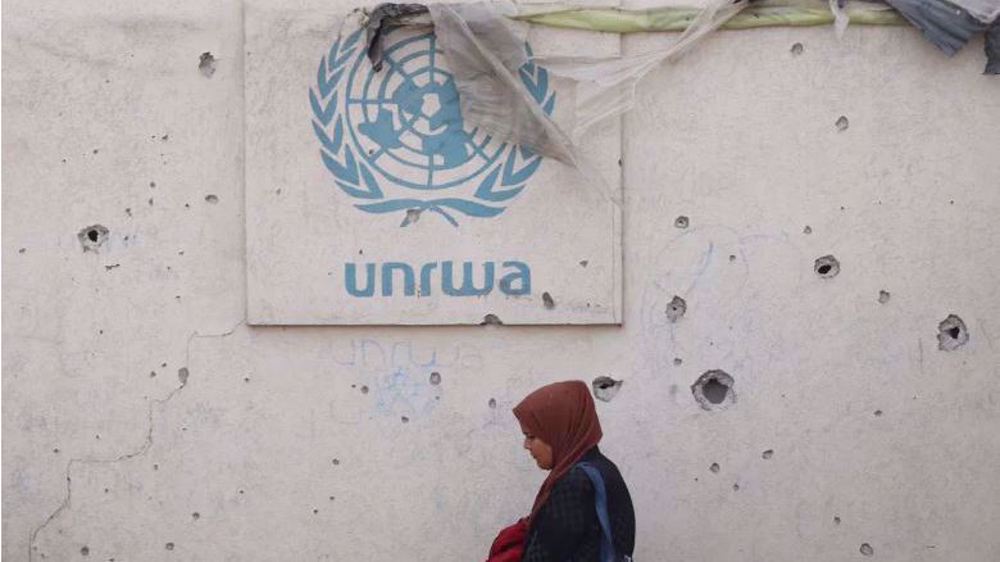
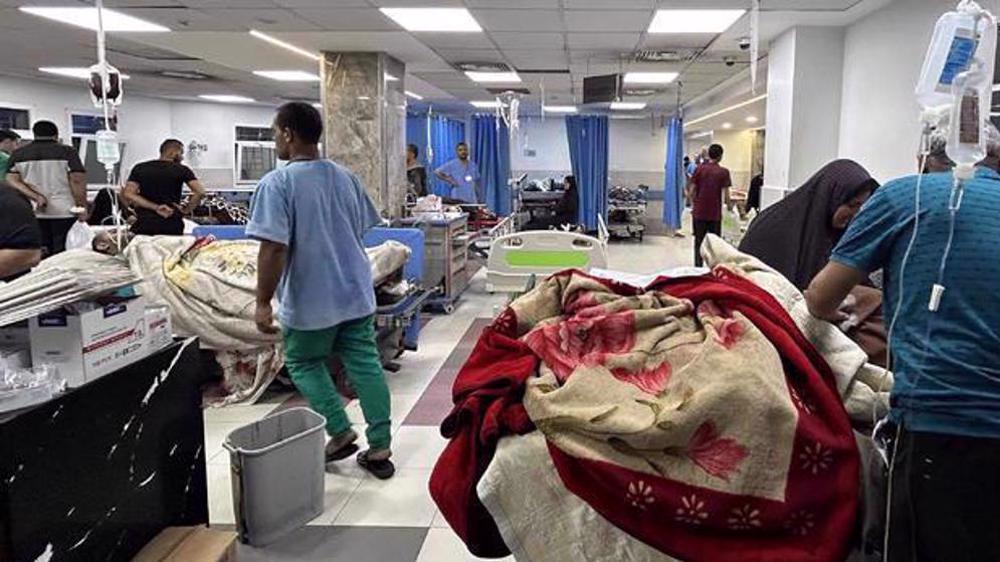





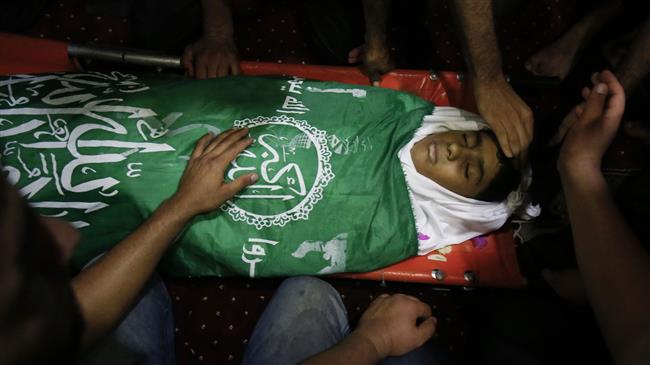
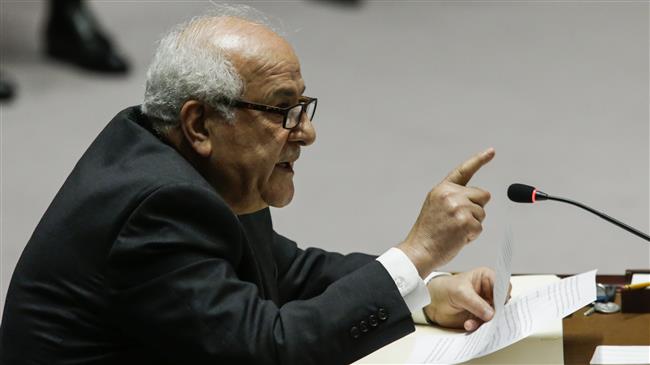


 This makes it easy to access the Press TV website
This makes it easy to access the Press TV website